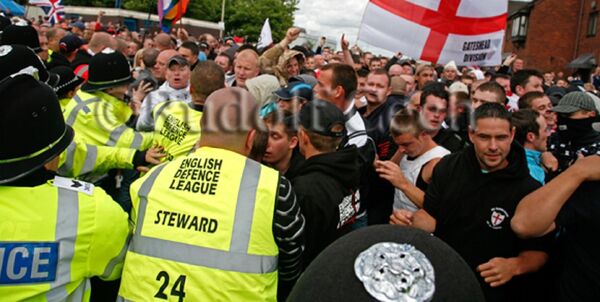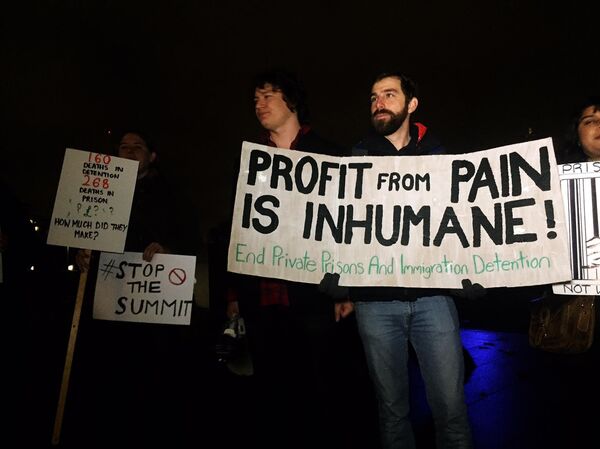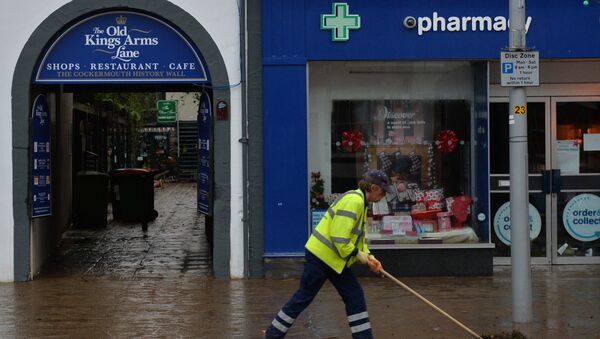In May 2017, a month prior to the General Election, Letchworth's 'Business Improvement District' (BID) structure — an unelected and unaccountable body — voted at a board meeting to bar political parties and/or campaign groups from setting up stalls in the town's center. The move was undertaken as "securing political balance was proving to be a challenge", and was said to "ensure equal representation for political parties" — by oxymoronically precluding any and all of them from campaigning activities in key public places.

"It was agreed by the board all legitimate political parties would have the opportunity to once again book space to promote their party in the town centre. The decision has already produced a positive outcome, with discussions taking place between the BID and parties looking to rebook space," they added.
Absent from the statement was any account of what responsibility any BID has for "securing political balance", how this responsibility was granted and why — and most importantly, what power the BID had to ban political activity in any space in the first place.
BIDding War?
BIDs were created in the UK in 2004 — as of February 2017, 270 were in operation across in the country. They are officially defined as "business-led organizations in a geographical area in which local businesses have voted to invest together to improve their environment". Funded by "a mandatory levy on all eligible businesses", they provide "additional or improved services, identified by the local businesses" — such as extra safety, cleaning or environmental measures.
While no mention is made in official literature of BIDs' potential political powers, the Letchworth case amply underlines that such a capacity exists — and the ability of an unelected, unaccountable body run by and for businesses to end political campaigning in a political area, perhaps purely because it may disrupt commercial activities even slightly, may well be extremely troubling to UK citizens.

"The BID has failed our town. Communication has always been terrible with them. They and the council pay gross amounts of money on schemes that do not work. It's just wrong, so many people think the same. It's just a scheme where traders are forced to pay two percent on top of their rates into a pot supposed to improve the trading environment for businesses in the town. Even those who didn't vote for the scheme have to pay under threat of bailiffs. In the years it's been running it has raked in almost £500,000 (US$658,000). Can you see where it has been spent?" he explained.
The dual issues of traders who don't support the scheme being forced to pay, and payment being fiercely enforced by state-backed bailiffs, were themselves highlighted August 2016 in Newcastle when 189 local traders refused to pay, with some stating the associated levy was not worthwhile. Moreover, many were concerned that the sum had to be paid in one go, not spread out in instalments — and many of the schemes spearheaded by BID, intended to boost revenues for local businesses, had in fact caused some traders to lose income.
Local Unaccountability
In all, BIDs are funded by businesses both willing and unwilling to the tune of hundreds of millions every year by around 100,000 businesses — but no indication is given to ostensible beneficiaries or the public about what the funds are spent on, or what if any benefit they provide.
Despite being established by Parliament, they are not subject to transparency and accountability requirements generally applicable to any other public bodies. BIDs' own members are only afforded access to internal accounting data if they sign a confidentiality clause, and many business owners who have signed such documents have still failed to receive the information they seek. In essence, even if concerned individuals are allowed to see their BID's accounts, they face prosecution for discussing its contents. Average British citizens simply have no means of accessing them whatsoever.



